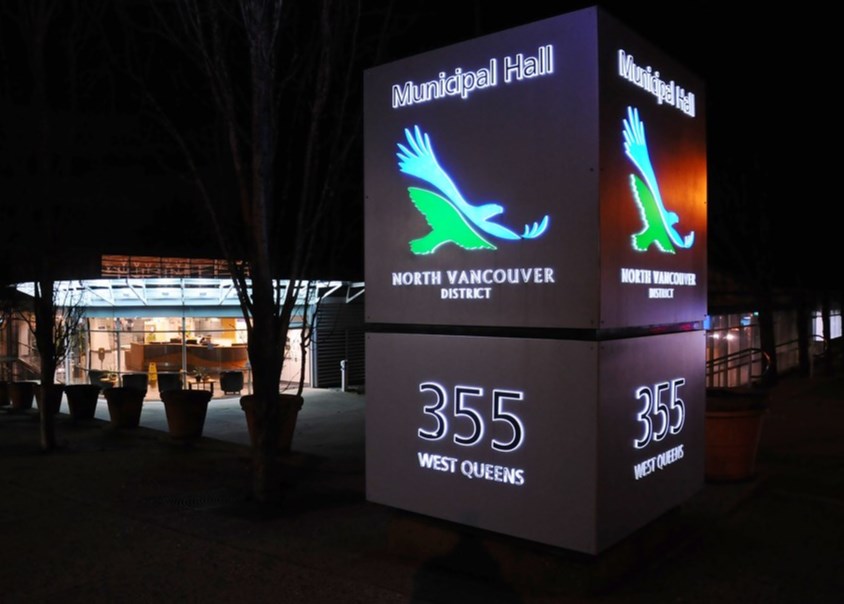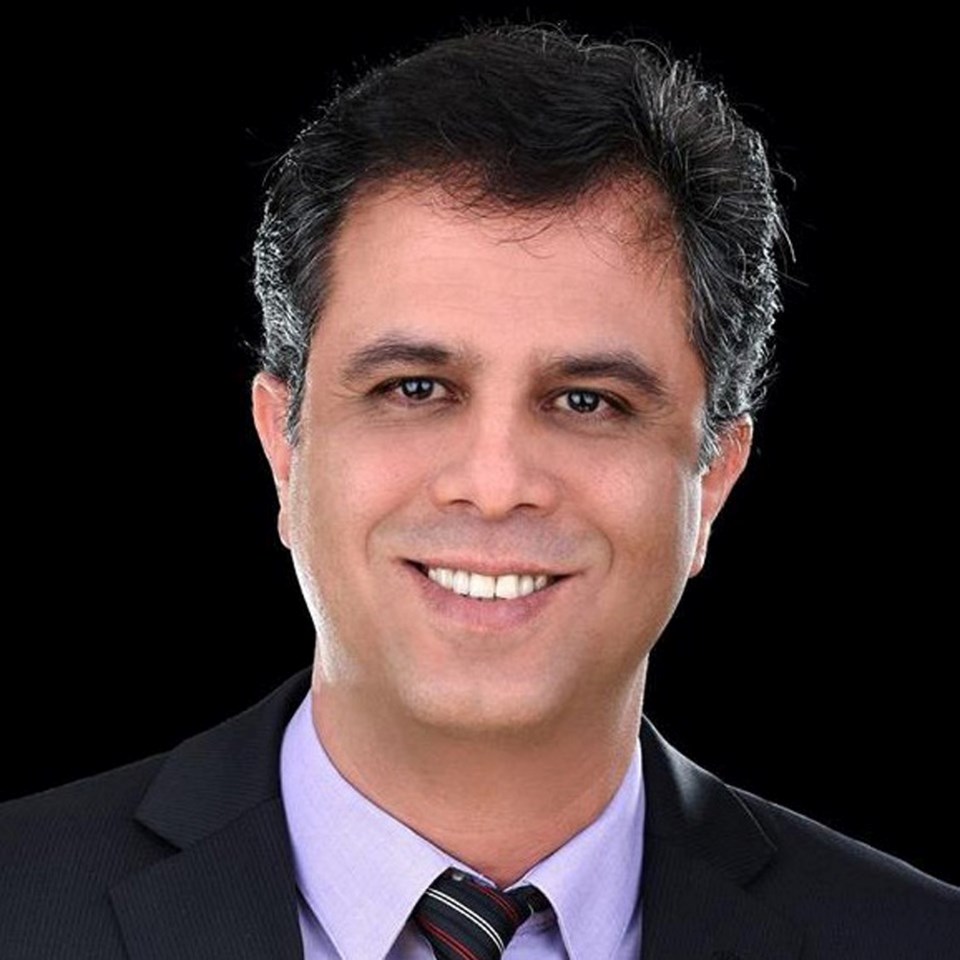As we do in every election cycle, we have asked the candidates running in all three North Shore municipalities a series of key questions about how they would govern and what impact they could have on the community.
Responses from District of North Vancouver candidates for mayor, council and school board are posted below in alphabetical order, sorted by position they are seeking.
Candidates for mayor
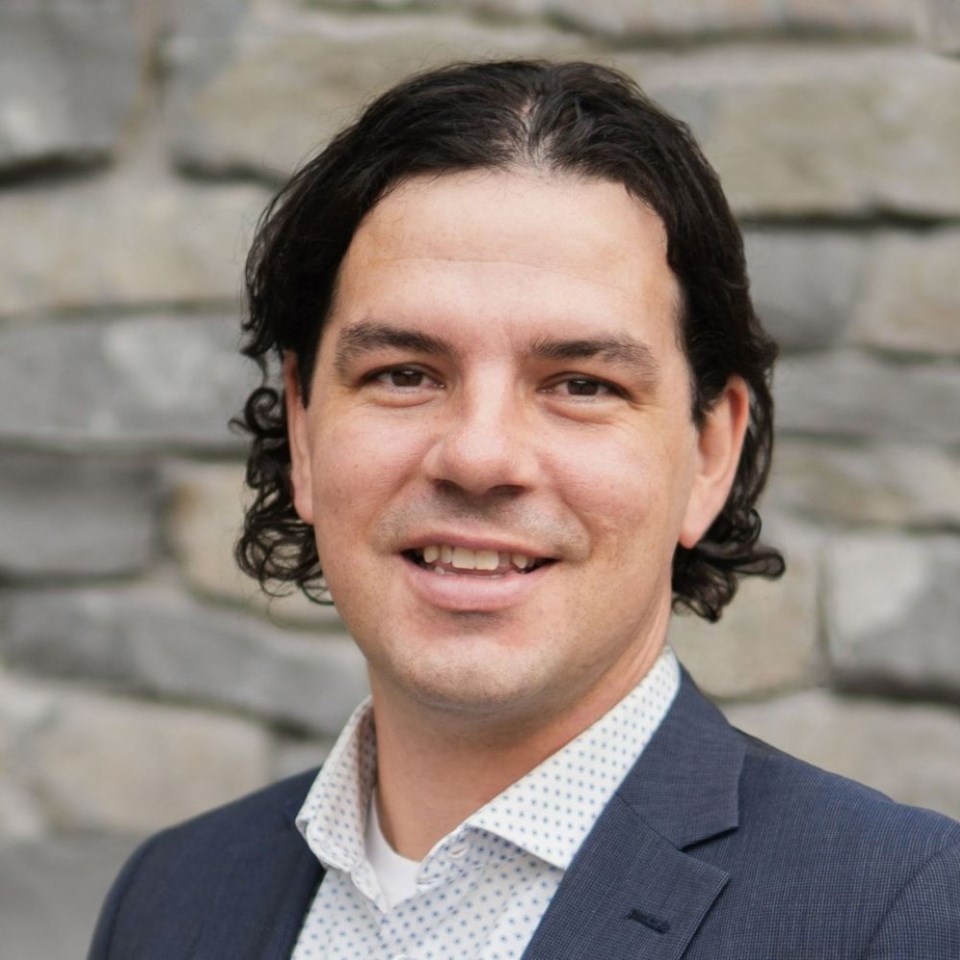
Name: Mathew Bond (incumbent councillor)
Age: no response provided
What neighbourhood do you live in? Lynn Creek (Seylynn)
Occupation: councillor, engineer
List your municipal and/or civic group experience:
I was elected to council in 2014. My committee experience includes Metro Vancouver housing, finance, heritage, major infrastructure and recreation. I was treasurer of Lynn Valley Preschool and president of the North Shore Mountain Bike Association
What are your priorities if elected?
To rise to the complex challenges of our time, with the leadership and long-term vision to implement 21st century solutions that fix what’s broken and ensure a sustainable community now and for generations to come.
What is your plan for local climate action?
Since declaring a climate and ecological emergency in 2019, the district now embeds climate, biodiversity and equity considerations into all decision making. Climate isn't a separate issue; it is the lens that underpins all decisions. Good land-use planning is the single most effective tool the district has to reduce emissions and move towards complete, connected neighbourhoods with sustainable mobility options for all ages and abilities. Working together with neighbouring governments and agencies across the North Shore to accelerate action on the North Shore resilience strategy is crucial.
What is your plan to address the housing crisis?
The future of the district is a community where residents young and old have housing options to stay as they age, where people feel hopeful setting down roots since their housing is secure, where it's easier for people to adapt their homes to changing life circumstances and where people can choose to live closer to where they work. To get there we will modernize our 1965 zoning bylaw for the 21st century, streamline municipal permitting and rezoning processes, expedite district owned lands for social, supportive, co-op and non-market housing and increase housing diversity in all neighbourhoods
What is your plan to improve transportation on the North Shore?
Transportation, housing and land-use are interconnected and we must address them together at a systems level. We’re suffering the consequences of 70 years of car-centric planning and there’s no silver bullet. We’ll work with TransLink to bring Bus Rapid Transit in the next five years. We’ll increase housing options so more people can live and work here. We’ll modernize zoning to reflect the evolution of how people live and work (i.e. working from home). We’ll accelerate the implementation of proven 21st century solutions including slow streets, complete/safe cycling routes, and expanded car share.
What should the municipality do to support small business?
The district needs to stop being a roadblock and maze of red tape for small businesses, and become a partner in their success. We’ll hire a small business champion who will co-create a 21st century small business vision and strategy. We’ll overhaul cumbersome, outdated district policies while advocating for provincial policy changes on highest and best use tax assessment. Modernizing housing and transportation systems will allow both owners and employees to live and work here. We’ll model the future we want by leading the transformation to a circular sharing economy and zero waste community.
Does the district need to diversify its housing supply?
Most of our homes and neighbourhoods were planned and built over 50 years ago in a time when climate change wasn’t a consideration. The way we live, work, socialize and recreate has evolved since the 1960s. By making room for more housing choices/options throughout the district we can reshape our neighbourhoods to respond to the challenges of our time. More opportunities for young people to stay. New neighbours to add diversity to our community. More options for seniors to age in place. I’ve been a consistent voice for increasing housing diversity during my 8 years on council.
Website/social media contacts:
mathewbond.com
twitter.com/mrmathewbond
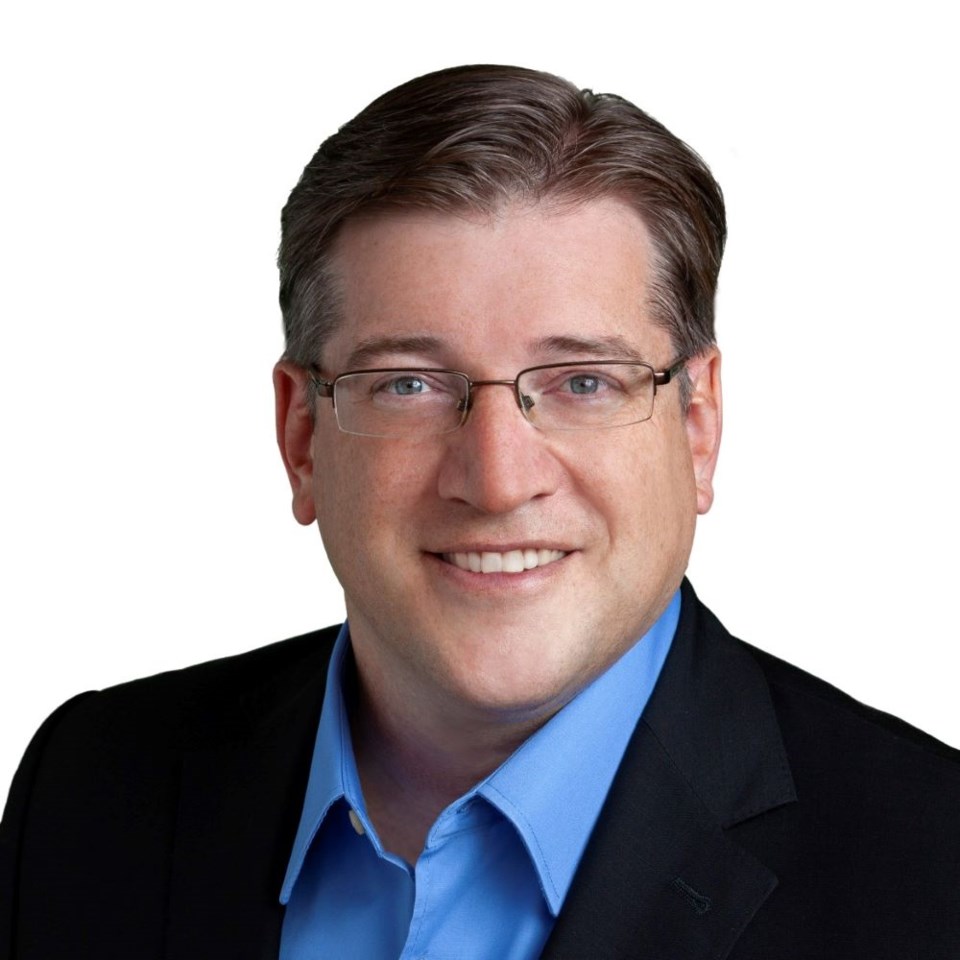
Name: Mike Little (incumbent)
Age: 46
What neighbourhood do you live in? Parkgate
Occupation: mayor
List your municipal and/or civic group experience: mayor, 2018 to present; councillor, 2005-2014.
What are your priorities if elected?
Transportation is still our top issue. We must also address housing costs with a variety of housing options.
What is your plan for local climate action?
The district is a leader in climate policy and I will continue to support our newly established climate action group.
What is your plan to address the housing crisis?
I have supported slowing down the production of full market units and instead focused on producing both non-market options and purpose-built rental projects. I will continue to require new buildings to have those benefits built in.
What is your plan to improve transportation on the North Shore?
I have worked with our neighbours to fight for transportation improvements in the TransLink Mayors Council 10-year vision, which has now been supported by the regional mayors. I will continue to advocate to the province and the federal government to fund those priorities and establish a long-term replacement plan for the Ironworkers Memorial bridge.
What should the municipality do to support small business?
The district already has one of the lowest business tax rates in the region, we have just hired a business and economic development manager to improve our support for our businesses. Ultimately, our efforts to improve transportation and housing affordability is geared to assist our businesses and residents alike.
Does the district need to diversify its housing supply?
Yes, to be a healthy community we need to support a diverse mix of housing forms, ownership models, and rental options.
Website/social media contacts:
mikelittle.ca
Council candidates (six seats)

Name: Jordan Back (incumbent)
Age: 39
What neighbourhood do you live in? Lynn Valley
Occupation: advertising account manager
List your municipal and/or civic group experience:
Served on DNV council since 2018, council representative on the DNV library board, North Vancouver Chamber, and the North Vancouver Museum and Archives Commission. I also served on Metro Vancouver’s industrial lands strategy task force.
What are your priorities if elected?
Creating housing diversity, active transportation investments, climate action, supporting small businesses, building stronger relationships with First Nations, involving younger people in local government.
What is your plan for local climate action?
I hope to build on many of the great strides this council has made with respect to climate action by ensuring that we make all decisions through the lens of a changing climate and the need to reduce greenhouse gas emissions. I hope that the DNV can continue to be a leader when it comes to climate action initiatives and that we build on the excellent work that came out of our community energy and emissions plan (CEEP), as well many of the actions that came out of our review of the official community plan.
What is your plan to address the housing crisis?
I will continue to support the creation of new housing that meets the needs of all demographics. This means encouraging a variety of housing across the housing spectrum from deeply subsidized (and supportive), to market rental, and strata homes. I support the vision of our OCP, which is to focus most density in our town centres that are in close proximity to transit, I also think we need to look at ways to create more homes in single-family neighbourhoods by making it easier to build coach houses, and look at allowing up to three housing units per single-family lot.
What is your plan to improve transportation on the North Shore?
I will continue to be a strong advocate for increased frequent transit service and continued investment in active transportation improvements (including a desire to see a fully built out network of safe and connected bike routes across our community) that will allow people to become less reliant on their personal automobiles and live a “car light” lifestyle. I have and will also continue to meet with car share providers to increase the availability of these services in some of our key town centres.
What should the municipality do to support small business?
Small businesses are the heart of any community like ours. For some, the pandemic had devastating effects. I would like to make the DNV a business-friendly municipality that attracts a wide variety of new entrepreneurs by helping them to navigate through all of the red tape that goes along with starting a business here. I would also like to see greater ongoing communication and collaboration between the Chamber of Commerce, as well as the various merchant associations, and explore areas that might work for the creation of new BIAs (business improvement areas). Vibrant neighbourhoods need thriving small businesses!
Does the district need to diversify its housing supply?
There’s no question the DNV will need to continue to diversify its housing supply if we want to be a sustainable and healthy community. The No. 1 issue with employers on the North Shore is recruiting and retaining staff, as most cannot find suitable housing. We need a variety of housing – not just subsidized or rental homes – for people to be able to move along the housing spectrum, and using our OCP (along with things like the housing needs reports), as well as building strong partnerships with the non-profit and development community can continue help us get to where we need to go.
Website/social media contacts:
jordanback.net
facebook.com/JordanBackDNVCouncillor
instagram.com/jordanbackdnvcouncil
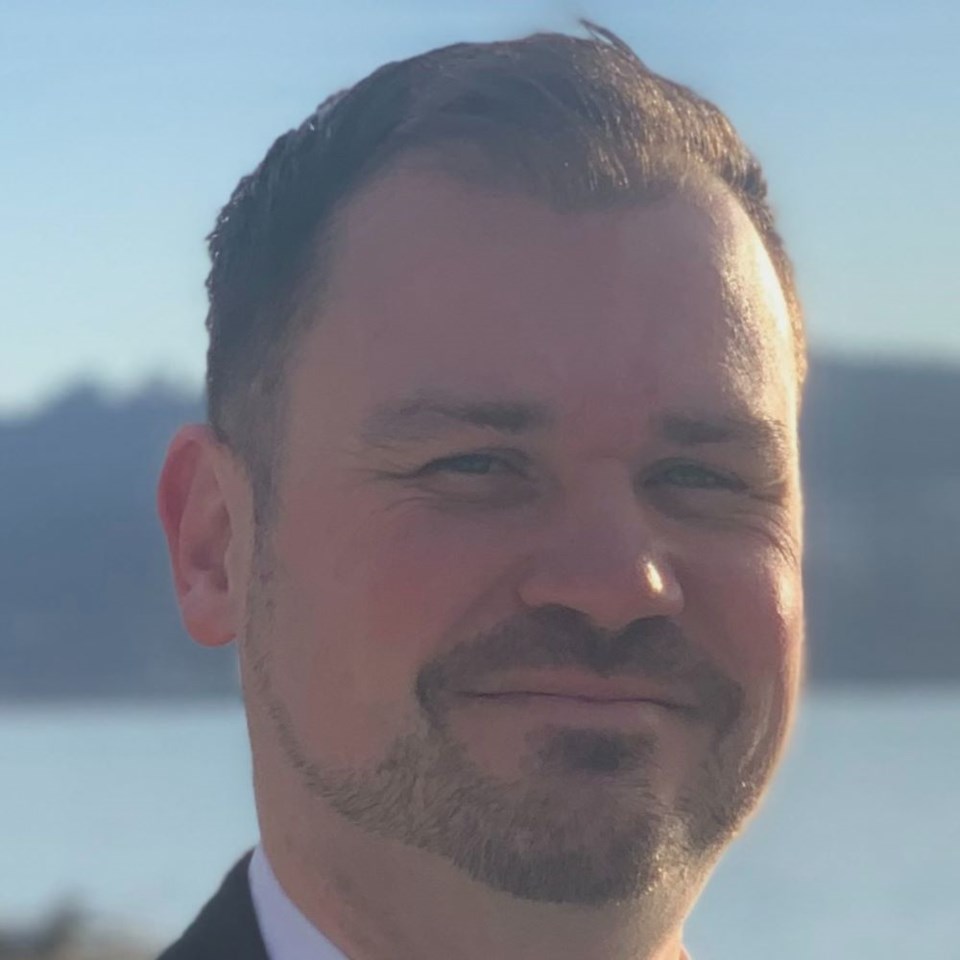
Name: Trey Bell
Age: 40
What neighbourhood do you live in? Lynn Creek (Seylynn)
Occupation: director of school-age programs, child care
List your municipal and/or civic group experience: board member and vice-president of Parkgate Community Services Society
What are your priorities if elected?
My priorities are housing affordability, families, improving transportation, making the district a better place for walkers/bikers, climate change adaptation and preserving green space/expanding our parks system.
What is your plan for local climate action?
We should be further studying what mitigation and adaptive measures can be taken to address the challenges of climate change. The district can be a leader by providing green infrastructure such as charging stations for electric vehicles and continuing to electrify its own vehicle fleet. We should be encouraging the use of e-bikes, road bikes, walking and other no carbon transportation. One of my core commitments will be to maintain the unique natural places in the district. I’m dedicated to keeping large trees standing in the district and naturally forested areas off limits to developments.
What is your plan to address the housing crisis?
We can’t build our way out of the affordability problem. Instead, I believe that we can work with developers to gain community benefits such as rent to own programs, affordable rental units, and more housing diversity. We need smart development, and not all developments are smart or work in the district. Well planned developments should only be considered when the necessary transit infrastructure is in place. In line with my view that no more green space should be lost to new developments, I am in favour of developing land, which is already disturbed (in-filling).
What is your plan to improve transportation on the North Shore?
We should be giving commuters more efficient transportation options. I would fight for a SkyTrain link to Phibbs Exchange, which would connect North Vancouver to the broader SkyTrain network. This could potentially be done in conjunction with a newly built rail bridge beside the Ironworkers Memorial or a newly built Ironworkers Memorial bridge itself. Both bridges are nearing end of life and should be rebuilt soon. I would advocate for more community shuttle buses (24-passenger buses), with more frequency at peak times, as well as creating a better network of bike lanes across the district.
What should the municipality do to support small business?
The district should streamline the permitting process for small businesses, and work with them to achieve beneficial outcomes for the community. Small businesses, just like all organizations, are facing a worker shortage, and one way to help this situation is to use density bonuses to encourage new developments that offer a certain number of rent-to-own, or affordable rental units to people who actually work in the district.
Does the district need to diversify its housing supply?
Yes. The district should be using an "all of the above" approach to the housing crisis and diversifying the housing supply is part of the solution. We should be following our Official Community Plan, which identifies town centres for the most growth and density, while exploring options such as laneway homes in the outlying suburbs. I think that growth and density should be primarily in the town centres, that are best served by transit, and have amenities nearby.
Website/social media:
treybell.ca
instagram.com/treyb_07
facebook.com/trelawny1

Name: Betty Forbes (incumbent)
Age: no answer provided
What neighbourhood do you live in? Lynn Valley
Occupation: DNV councillor, accountant
List your municipal and/or civic group experience:
DNV finance and audit committee; DNV commissioner, North Vancouver Museum and Archives (MONOVA); commissioner, North Vancouver Recreation and Culture; DNV advisory oversight committee; DNV property tax parcel roll; OCP implementation monitoring; Lynn Valley Community Association board; NVCAN board; S.O.S; etc.
What are your priorities if elected?
Transportation; infrastructure; housing and development; fiscal and environmental sustainability.
What is your plan for local climate action?
Reduce energy levels, incentivize hard/pollination landscaping, develop extreme weather response plan, continue to offer incentives to build and retrofit "green," circular economy (reuse), create local jobs, create safe active transportation, lobby provincial and federal government for grants to municipalities to be able to take more action at a local level.
What is your plan to address the housing crisis?
Diverse housing for diverse incomes. This means ownership, rental, rent-to-own, supportive, co-op, row housing. The key is the discussions with the community where this is being considered, planning, gentle transitioning with established neighbourhoods. The provincial and federal governments need to provide funding for the housing crisis like they did back in the '70s. More diversity of housing to meet the different needs of our community (see answer below). Supply without change in the type of housing we build will not solve the housing crisis. At the moment, housing is a commodity.
What is your plan to improve transportation on the North Shore?
Improve infrastructure i.e.: replace Ironworkers Memorial bridge with more lanes and decks to handle the bridge head traffic. Dedicated lanes SkyTrain, rapid buses, industrial, large commercial vehicles, and active transportation. Provide shuttle buses for short runs, develop another local east-west route, improve the two current access/exit routes to the eastern part of DNV as well as build a new crossing (or ferry terminal) to Burnaby or Port Moody. Create a second on-off ramp to Lions Gate Bridge on DNV lands. Improve north-south public transportation. Build safe active transportation routes.
What should the municipality do to support small business?
Local small businesses are the fabric of our community and provide jobs. The community charter defines/limits what a municipality can do to assist businesses. However, a local government can implement programs, policies, and services that support economic development such as business improvement areas and specified tax exemptions. A bylaw to establish a local ae in which different types of businesses in an area can join together to finance marketing, promotional, revitalization programs through a municipal grant.
Does the district need to diversify its housing supply?
Yes. The official community plan identified the need for diverse housing for diverse incomes with sensitivity, planning, transitioning in established neighbourhoods.
Website/social media contacts:
bettyforbes.ca

Name: Jim Hanson (incumbent)
Age: 61
What neighbourhood do you live in? Blueridge
Occupation: lawyer
List your municipal and/or civic group experience:
Blueridge Community Association. Twice elected to North Vancouver District council 2014 and 2018.
What are your priorities if elected?
Rapid transit to the North Shore, cycling and pedestrian routes, green space protection and affordable housing.
What is your plan for local climate action?
No concrete towers, more wooden structures, green space protection, transit and active transportation investments to relieve congestion, and supports for elective vehicles and energy efficient retrofits.
What is your plan to address the housing crisis?
We need to prioritize social, affordable and rental housing. We need investments from all levels of government in affordable housing. We need to pursue rental-only zoning and “gentle densification” (allowing duplexes, triplexes, secondary suites and coach houses in single-family zones.
What is your plan to improve transportation on the North Shore?
I commit to working to ensure that by the end of the upcoming council term we have a definite plan with budgets and construction timelines for rapid transit to and from the North Shore. I will vote in council to increase investment in cycling and pedestrian networks.
What should the municipality do to support small business?
Create affordable housing for the local workforce and address local transportation needs.
Does the district need to diversify its housing supply?
Yes, we need more rental, affordable and social housing.
Website/social media contacts:
JimHanson2022.ca
twitter.com/JimHanson
facebook.com/JimHansonDNV
instagram.com/JimHanson_NV

Name: Harrison Johnston
Age: 23
What neighbourhood do you live in? Lynn Valley
Occupation: climate organizer and tutor
List your municipal and/or civic group experience:
As a climate organizer I have worked with a number of municipalities on their climate action plans. I ran to represent North Vancouver-Seymour in the 2020 provincial election. I have volunteered with climate, youth and community groups.
What are your priorities if elected?
My top priorities are climate action, increasing access to truly affordable housing options and improving public and active transportation infrastructure.
What is your plan for local climate action?
The two main areas that municipal governments can take climate action are through buildings and transportation. The district has taken some very important steps in both of these areas over the past four years and we need to ensure that good work continues during the next term. Requiring that new single-family homes meet Level 5 of the BC Energy Step Code was an important step. We now need to focus on retrofitting existing homes and expanding requirements for commercial buildings. We need to continue to improve public and active transportation options to give people the choice to not drive.
What is your plan to address the housing crisis?
We need to work with senior levels of government, the Tsleil-Waututh and Squamish Nations and non-profits to build truly affordable, non-market, social and co-op housing. We need to allow and incentivize people to build duplexes, triplexes, secondary suites and coach houses across our community. We need to increase density around existing population centres and ensure that this development comes along with increased access to libraries, community centres, parks and green spaces.
What is your plan to improve transportation on the North Shore?
The best way to reduce traffic across the North Shore is to provide people with the choice to not drive. We need to continue working with TransLink towards their 10-year plan, prioritizing the Rapid Bus lines from Lynn Valley to downtown and Ambleside to Metrotown across the Ironworkers Memorial. We need to increase service and reliability on all bus routes by creating more dedicated lanes and priority traffic lights. We also need to improve the safety of biking infrastructure across the community.
What should the municipality do to support small business?
The best thing that council can do to support small businesses in the community is to make the district an attractive place for people to work. The best way to do that is to increase access to affordable housing and improve transportation options.
Does the district need to diversify its housing supply?
Yes, we desperately need to diversify our housing supply. We need to prioritize building social and non-market rental housing that is truly affordable for students, seniors and minimum wage workers. We need to increase the supply of affordable townhouses and co-op housing that is well-suited for young families. We also need to focus on increasing the supply of duplexes, triplexes, secondary suites and coach houses across the community. We need to ensure that the permitting process for these types of housing is streamlined and simple.
Website/social media contacts:
harrisonjohnston.ca
twitter.com/Harrison4NV
instagram.com/harrison4nv
facebook.com/harrison4nv
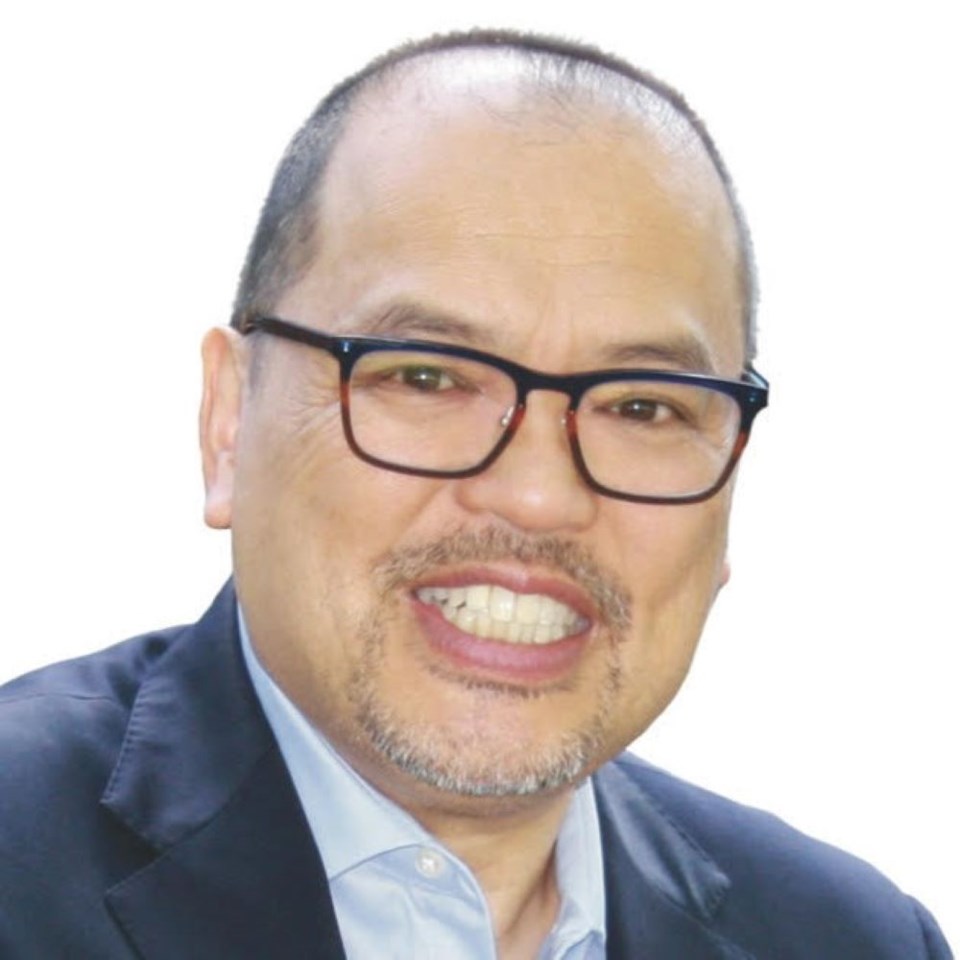
Name: Herman Mah
Age: 57
What neighbourhood do you live in? Pemberton Heights
Occupation: BC Housing real estate asset manager
List your municipal and/or civic group experience:
Pemberton Heights community association, vice-president; North Vancouver Recreation and Culture Commission, vice-chair; community services advisory committee; North Vancouver Community Associations Network; Downtown Vancouver Association board.
What are your priorities if elected?
Family and community: keep district a great place to live and work. Rapid transit and active transportation improvements. Affordable and senior housing. Advocate for businesses and industries so they can create opportunities.
What is your plan for local climate action?
Ensure that council looks through climate change lens when making policy decisions. Promote sustainability in new developments, such as requiring developers to offer car-share and charge stations. Ensure new multi-family housing uses clean energy heating options and fly ash concrete. Collaborate more effectively with TransLink on efficient public transit, including Bus Rapid Transit system for people to get on and off North Shore. Apply adaptation strategies and build resilience in our infrastructure. Work with partners, such as education board and First Nations; education is key for future.
What is your plan to address the housing crisis?
Explore opportunities to utilize district-owned properties to build rental housing. Since district will be partner in these projects, profit motive is not the main driver and prices should be more affordable. Collaborate more effectively with senior levels of government that can provide substantial funding for social housing. Reduce approval times so projects, which have community support, can be built faster. Regulate short-term accommodations in order to increase pool of rentals. Ensure that planning for infrastructure and mobility happen concurrently; build communities not just high-rises.
What is your plan to improve transportation on the North Shore?
Not being able to efficiently travel around the district and get on and off the North Shore impacts our quality of life. We need solutions: Work more effectively with TransLink and other North Shore communities on getting BRT (Bus Rapid Transit) system up and running within the next one to two years. Implement shuttle buses between town centres. Use water-based transportation from the North Shore to points on south side of the inlet.
What should the municipality do to support small business?
Small businesses are essential to maintaining high quality of life: Address staff shortages by focusing on mobility and housing so staff can efficiently travel or be able to afford or rent housing in district. Develop district branding strategy and support other groups to promote the district for retail shopping and for businesses to set up. Promote vibrant communities to encourage people to get out and about. This will help to increase consumer confidence. Focus on outdoor activities, dog parks, playgrounds and advocating for safer streets. Streamline processes for licensing and renovations.
Does the district need to diversify its housing supply?
Based upon latest census data, 49 per cent of housing in district is single family dwellings. These houses form core of our traditional neighbourhoods. Additional housing is needed and they should be diverse forms so that District residents can have options if they want to upsize or downsize from their current situation. Having variety also adds to community building so that it’s not just high rises in one area. Diversification can also be in type of tenure: ownership, rental, co-housing, rent-to-own, co-op, supportive housing and low-cost housing. We need housing that meets the needs of the community.
Website/social media contacts:
HermanMah.ca
linkedin.com/in/hermanmah604/
facebook.com/HermanMahforCouncillorDistrictofNorthVancouver
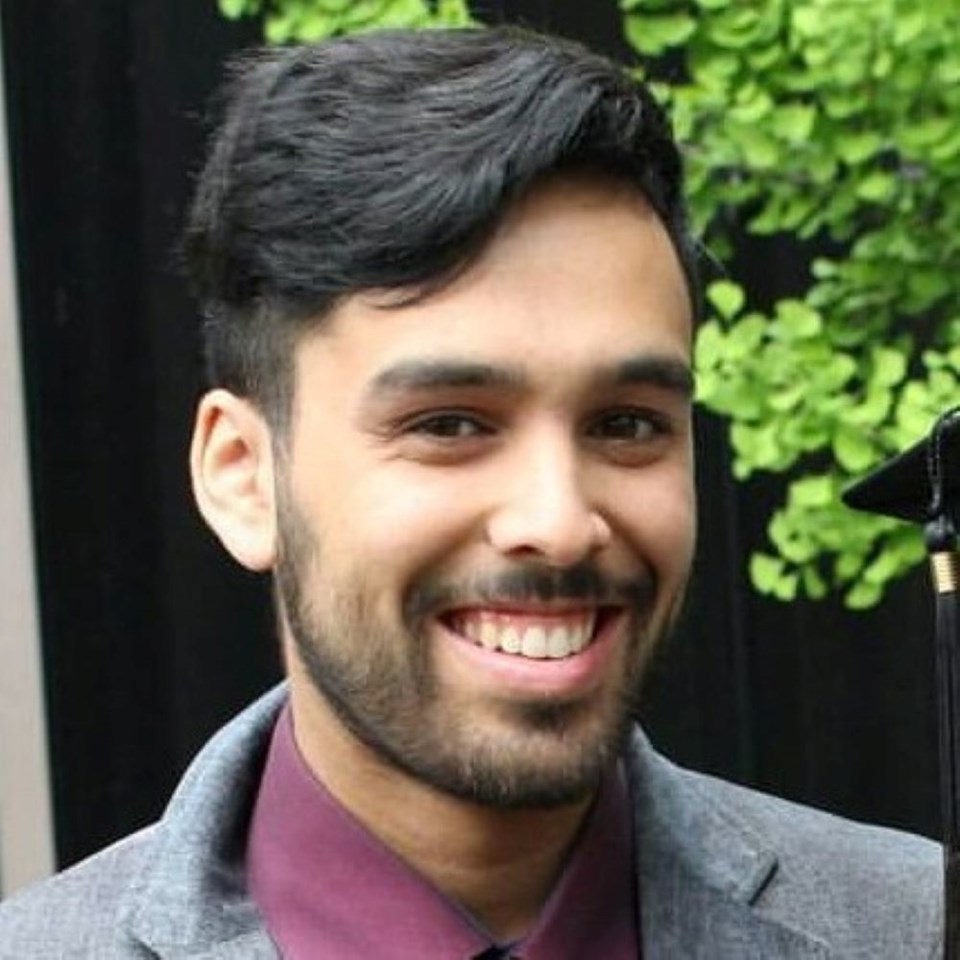
Name: Ellison Mallin
Age: 27
What neighbourhood do you live in? Lynn Valley
Occupation: constituency assistant to MLA Susie Chant
List your municipal and/or civic group experience:
Member of the community services advisory committee, past member of the rental, social and affordable housing task force.
What are your priorities if elected?
To build complete communities. This means focused affordable developments, proactive transit options, and accessible recreation and health care. My main focus will be on housing to ensure people who work here can live here.
What is your plan for local climate action?
The DNV has done a lot of work on this front already, and that needs to be continued. A healthy environment should be a “happy by-product” of a well-designed community. Proper land use, walkable neighbourhoods, and accessible options for transit will go a long way when it comes to climate action. We also need to work more with Tsleil-Waututh and local non-profits to complete more habitat restoration, especially along sensitive waterfront and watershed areas.
What is your plan to address the housing crisis?
We need to define what affordability means first and foremost. Missing middle housing, social housing, multi-generational housing, transit-oriented housing with reduced parking requirements, and workforce housing will all be major focuses of mine. I also want to see more options for affordable ownership, such as rent-to-own, co-ops, co-housing, and housing with resale limitations/covenants. My housing platform is much longer than what I can fit here, but finally I want to see a strong, and enforced plan to manage short-term rentals in the district (Airbnb, Vrbo, etc).
What is your plan to improve transportation on the North Shore?
We need to build transit proactively – meaning we do not wait for the demand to be greater than the supply. I will support the work required to complete TransLink’s 10-year plan. We need better east-west connections, especially ones that can avoid highway traffic, and we need to look at some creative solutions to transportation woes. One example that has been popular to folks I chat with has been a foot ferry from Deep Cove to Port Moody that at least operates in the summer. We also need better active transport along Dollarton Highway badly.
What should the municipality do to support small business?
The top priorities of every business owner I have spoken to are transportation and housing. Businesses need workers! The massive labour shortage here makes it abundantly clear that we need housing for our workforce as a top priority. Better transit options to business centres are also desperately need, as it is almost criminal how difficult it is to get to Deep Cove or Edgemont from other neighbourhoods in North Van. We also need to build more community around our local businesses, which means more localized promotion of North Van businesses, and events like farmers markets.
Does the district need to diversify its housing supply?
Yes. I could leave it at that, but might as well use the space. Unfortunately, too many folks have been made to think that the options are either towers or nothing at all. There is a full spectrum of “missing middle” housing that is not being built on the North Shore. We need workforce housing. We need pet-friendly housing. We need independent living options for people with disabilities. We need seniors housing. We need multi-generational housing. We are desperately far behind on our targets for social housing. The list goes on…
Website/social media contacts:
ellisonmallin.ca
facebook.com/ellisonmallin
twitter.com/ellisonmallin
instagram.com/ellisonmallin
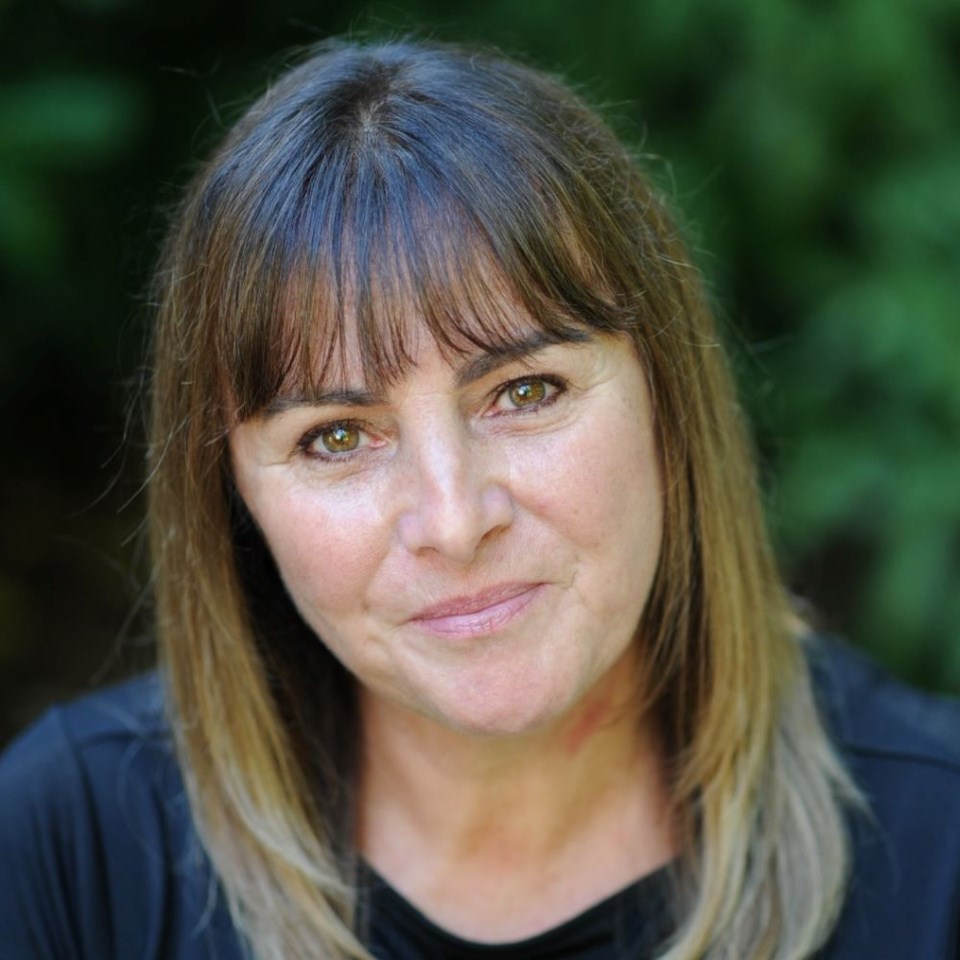
Name: Lisa Muri (incumbent)
Age: 57
What neighbourhood do you live in? Seymour
Occupation: mother; municipal councillor; board and committee member, Metro Vancouver.
List your municipal and/or civic group experience:
26 years on council, District of North Vancouver; 40 years, community activist.
What are your priorities if elected?
Addressing neighbourhood transportation impacts, sustainability and livability assessment, low income and social housing, broad communication and engagement review, increased Planning and maintenance of trail and park systems, prioritization of tax dollars.
What is your plan for local climate action?
Continue to build resiliency, increase implementation time corporate energy policy, balance uses in town centres to create true walkable neighbourhoods, implement solar opportunities and energy Storage, concentrate safety on high volume active transportation routes, implement best environmental policies, IPCC.
What is your plan to address the housing crisis?
Lobby provincial government to removes highest and best use, including review of assessment act, utilize DNV land within town centres to support low income and social housing, increase percentage to min 30 per cent within existing density, use strategic DNV serviced land, protect existing older rental supply, close to services for social housing, maintain livability and sustainability. Density has not reduced price, i.e. supply and demand because of location.
What is your plan to improve transportation on the North Shore?
Use engineering to reduce speed and manage volume in local neighbourhoods, make town centres truly walkable through amended retail and commercial uses, prioritize DNV resident and business impacts, support rapid bus, park and ride review, including shuttle staging areas, safe high volume active transportation connections, allow build out of developments to assess impact on road system.
What should the municipality do to support small business?
DNV needs to review the Maplewood plan to accommodate commercial and light industrial business on the east side of Riverside, support competitive tax rates for industrial and small business, implement policy for minimum and maximum unit size including focused service uses, amend density to accommodate retail and commercial, commercial 2 ns floor, not street level, remove highest and best use, lobby provincial government to review assessment act. Protect light industrial land, and revise permitting systems.
Does the district need to diversify its housing supply?
Most diverse housing supply on the North Shore, we need to concentrate on rental only zoning, increased low income, social housing and identify areas and opportunities to increase shelters especially in colder, wetter months, protect existing rental and social housing.
Website/social media contacts:
LisaMuri.ca
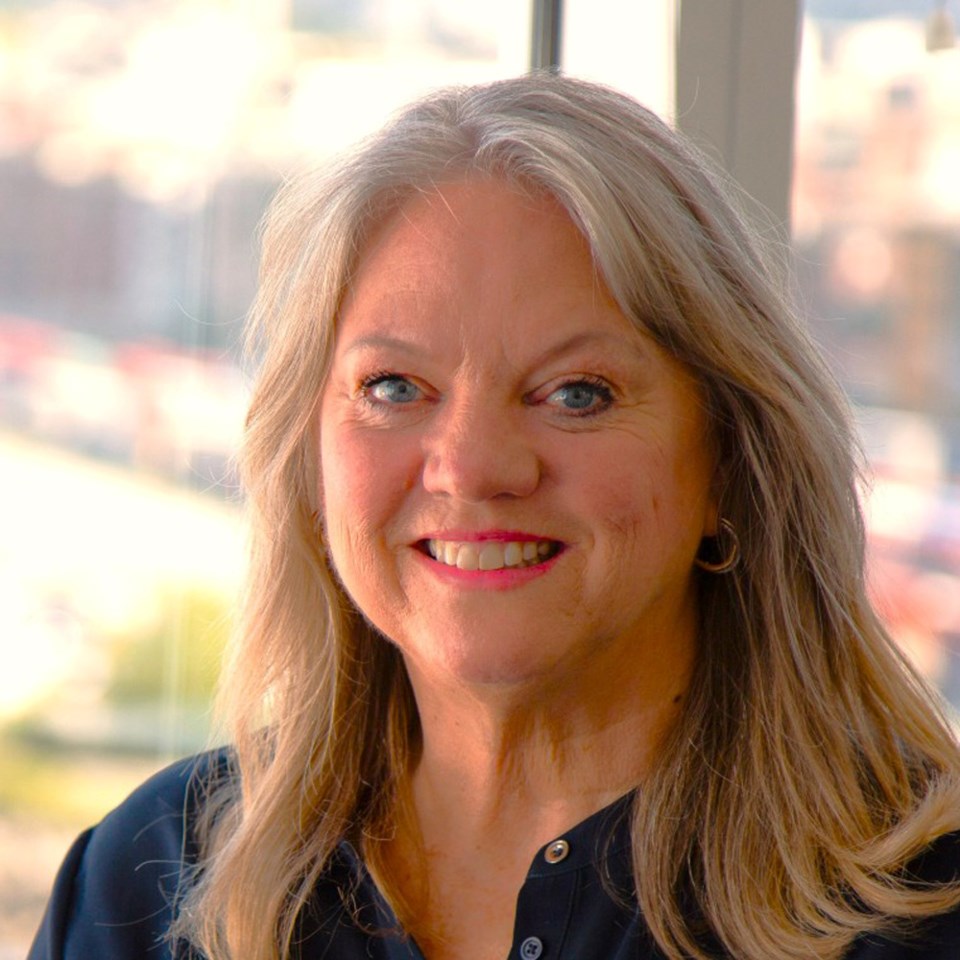
Name: Catherine Pope
Age: 55+
What neighbourhood do you live in? Delbrook (CNV at the boundary with DNV)
Occupation: communications consultant, former journalist
List your municipal and/or civic group experience:
Extensive experience reporting on municipal affairs during two decades with Global TV. I am a long-time volunteer and advocate for vulnerable youth and children, served on the Braemar PAC and volunteered for the 2020 North Vancouver homeless count.
What are your priorities if elected?
Affordable housing. Streamlining zoning and approval processes for developments. Improving traffic flow. Relationship building with Tsleil-Waututh and Squamish First Nations.
What is your plan for local climate action?
Continue on the district's path of sustainability. Encourage net zero development, promote heat pumps, increase awareness of climate change impact in North Van, carefully expand bike lanes in consultation with impacted neighbourhoods.
What is your plan to address the housing crisis?
We can't change the land values that drive up prices. But the district can provide the land and zoning for housing diversity to build a thriving community that meets the needs of all ages. Development and approval processes need to be streamlined and affordable housing projects prioritized. The old Delbrook Community Centre is an example of a failed process. Seven years after it began, not one shovel is in the ground. We can do better. Mixed-use, low-income, workers housing and seniors facilities can be built in higher density areas and town centres where services and transit are accessible.
What is your plan to improve transportation on the North Shore?
Part of the solution to gridlock is affordable housing for commuters who work in North Van. Lower income earners and young people we depend on for services simply can’t afford to live here. Although a new rapid transit crossing over Burrard Inlet has been prioritized, we must continue to strongly advocate for the project until funding is secured. The east-west transit system within the district lacks connectivity and capacity. We need direct bus routes that incentivize people to use transit to save time. Continue careful expansion of bike lanes, in consultation with impacted neighbourhoods.
What should the municipality do to support small business?
Small businesses are the lifeblood of a community. However, staffing shortages are hurting their bottom lines. Again, housing affordability is a big part of the problem. If we develop low-income, diverse housing, staff will be able to rent or buy here. I commit to listening to and responding to the changing needs of small businesses to ensure their ongoing success in this community.
Does the district need to diversify its housing supply?
Absolutely. Diverse housing enables communities to grow and thrive. We need more affordable and low income housing. Also, our population is aging. In the coming years there will be enormous pressure on long term care, especially as several facilities have closed in the last year. Facilities and supports are needed for different types of seniors care. Health care zoning should be on our radar. Any facilities for seniors should be built with a focus on safety and healthy, active living, including social connections.
Website/social media contacts:
CatherinePopeNorthVan.net
facebook.com/Catherine Pope for North Van District Councillor
twitter.com/GlobalPope
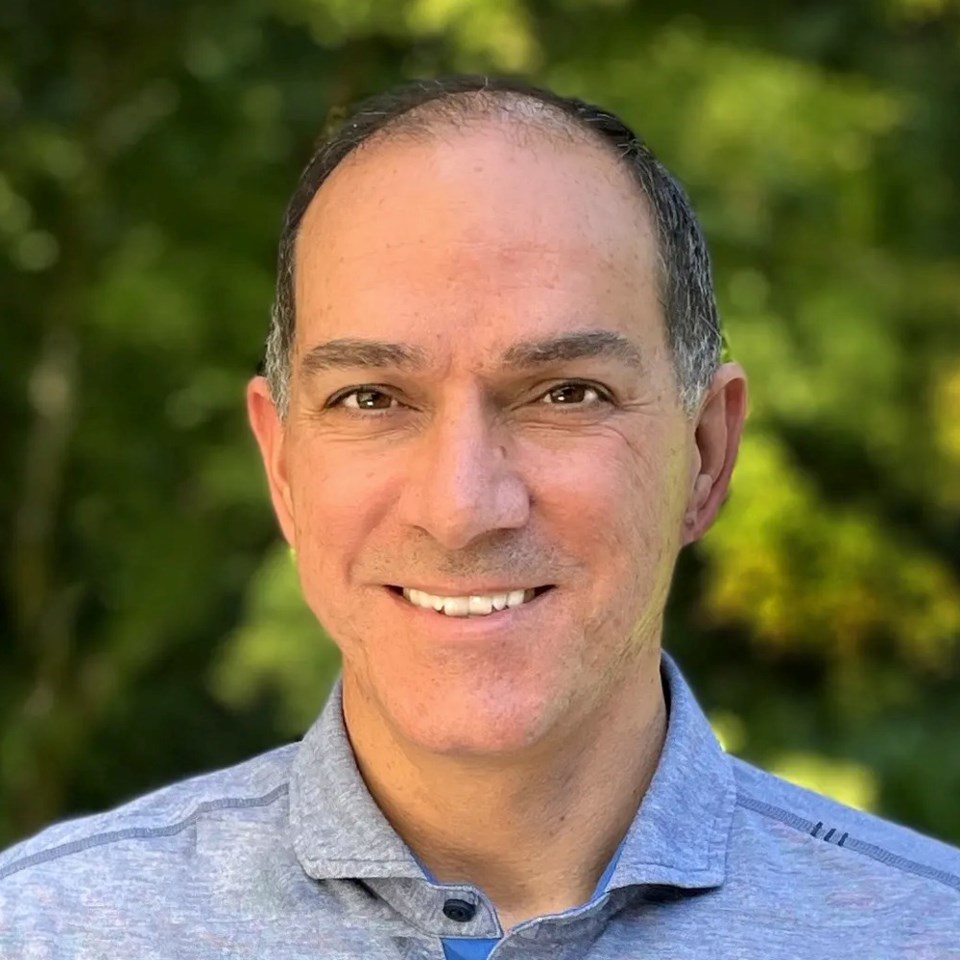
Name: Greg Robins
Age: 58
What neighbourhood do you live in? Lynn Valley
Occupation: executive director
List your municipal and/or civic group experience:
Board member, Lookout Housing + Health Society; board chair, Lookout Housing + Health Foundation; volunteer, Lynn Valley Community Association; volunteer, Greater Vancouver Community Services Society; Track building, NSBMX.
What are your priorities if elected?
More flexibility in types of housing with easier approvals, safer routes for bikes and pedestrians, increased resilience in the face of climate change, and more support for local, independent businesses.
What is your plan for local climate action?
The protection of our homes and community against the real threat of forest fires depends on the continued or increased removal of natural fuel in the woods and stepped-up awareness of the FireSmart program. To help offset emissions, create incentives for people to switch to electric garden tools, retain the $2,000 Jump On A Heat Pump program, accelerate active transportation plans, and encourage a planning/zoning strategy for more walkable communities across the North Shore. Reaching or exceeding our community energy and emissions plan is a leadership challenge councillors must rise to.
What is your plan to address the housing crisis?
The district can follow in the footsteps of other progressive municipalities and give flexibility to renovators and builders through an update of planning and zoning regulations. We can leverage federal and provincial subsidies to create more co-op and supportive housing. We can plan out workforce housing to build homes for the people we need on the North Shore to support our businesses and services. I would like to see our zoning bylaws discourage mansion-sized houses and encourage more efficient homes for a wider range of people.
What is your plan to improve transportation on the North Shore?
We all want less traffic on our roads and quieter, healthier communities. I believe the district should accelerate the creation of safe, fully connected routes for anyone getting around who is not in a car. With more flexible zoning and support for local businesses, we can bring goods and services closer to our homes. We need to add more sidewalks and safer crosswalks. The less we need to drive to a destination, the less traffic we all have to endure. I would strongly support more homes close to transit hubs to attract more car-free residents and justify more bus service from TransLink.
What should the municipality do to support small business?
As a previous small business owner in the district, I believe we need to promote our local entrepreneurs to residents and visitors. Like the city’s Shipyard District, we could build vibrant hubs where people can safely walk or ride to and patronize our local operators. The chronic lack of staff can be mitigated through workforce housing and more purpose-built rentals. Taxation should be reviewed and kept at the lowest possible rate for small businesses, particularly when compared to rates paid by major industrial contributors.
Does the district need to diversify its housing supply?
Our zoning bylaws were initially written in 1965 and reflect the restrictions on housing types from over half a century ago. Since our homes have become a commodity to buy and sell, entering the market is nearly impossible for most middle-income earners. We have no choice but to add diverse housing people are demanding. I will strongly support progress toward multiplex, co-op, and rental housing that lets younger people into the district through gentle densification.
Website/social media contacts:
gregrobins.ca
facebook.com/councillorgregrobins
twitter.com/gregrobinsDNV
instagram.com/gregrobinsdnv
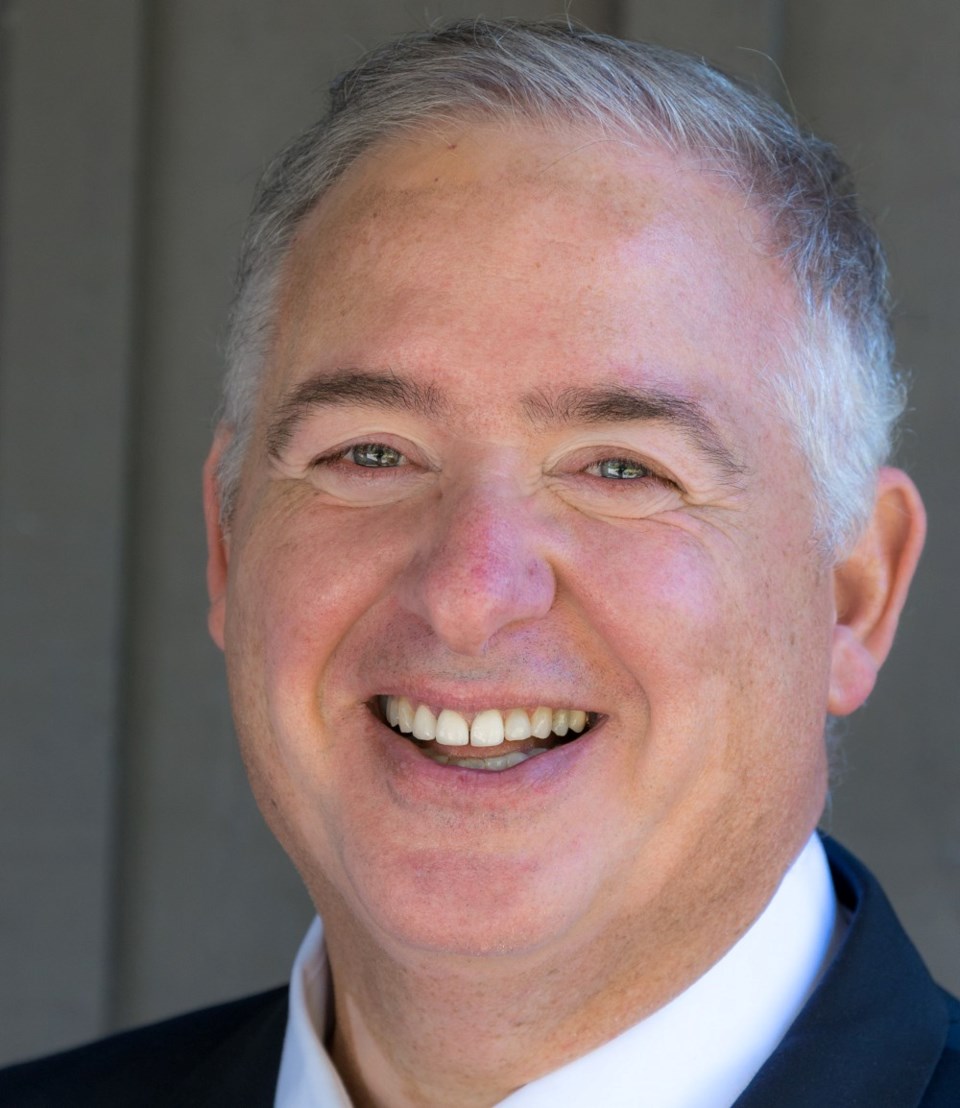 >
>
Name: Peter Teevan
Age: Old enough to know my times tables! ;)
What neighbourhood do you live in? Seymour
Occupation: Semi-retired process change manager
List your municipal and/or civic group experience: Five years attending nearly every DNV council meeting, Seymour Community Association, vice-president, North Vancouver Community Assocations Network.
What are your priorities if elected?
Solve traffic gridlock. Protect DNV from becoming like downtown Vancouver. Bring common sense to DNV council decision making.
What is your plan for local climate action?
I want to see every decision we make have the least adverse effects on our climate as possible. At the same time we need to realize our maximum local benefits will come from preparing for a mitigating risks and effects of a changing climate. We need to balance this with making the cost of living affordable for our residents.
What is your plan to address the housing crisis?
I feel the way forward to us to complete our housing needs is to focus on three- to four-storey wood-frame family townhomes along transit corridors. I would also like to see us vastly increase the amount of rental housing - both market and sub-market and affordable. The provincial and federal governments need to stop punishing builders for building rentals and we can support this by implementing rental-only zoning in our zoning bylaw. Lastly, we need to protect existing affordable purpose-built-rentals by taking the development target off their backs by freezing their density to their current build.
What is your plan to improve transportation on the North Shore?
This is mostly a regional and provincial question. We need SkyTrain across the North Shore right into the Horseshoe Bay Ferry Terminal and across a new Second Narrows bridge. Protected cycling lanes that connect our neighbourhoods, but not competing for the same space as transit and commercial traffic.
What should the municipality do to support small business?
Work with the province to mitigate "best and highest use" property assessments and then spend less money so we have to charge less taxes, which are onerous on businesses.
Does the district need to diversify its housing supply?
Gently so, yes. We should not be encroaching on greenfields (cutting trees) for more housing – there is no need.
Website/social media contacts:
PeterTeevan.ca
Facebook.ca/PTforDNV
Age: 50
What neighbourhood do you live in? North Vancouver
Occupation: immigration consultant and business owner
List your municipal and/or civic group experience: Volunteer as director member of West Vancouver Foundation board. Policy committee member and also an admin of a Facebook community group with 32,000 members.
What are your priorities if elected?
Traffic, clean environment with increasing the EV stations, affordable housing with decreasing the tax and end to "no pets" in rentals.
What is your plan for local climate action?
Stopping the noisy vehicles, increasing the EV stations, encourage community to use electric bicycles which need Infrastructure and safe routes.
What is your plan to address the housing crisis?
Decreasing the property taxes, end to the "no pets" for rentals, relationship with small or medium size of contractor as developers to increase the competitions.
What is your plan to improve transportation on the North Shore?
All bus stations must have shelter and benches. By reducing the traffic, buses could be better availability.
What should the municipality do to support small business?
Equal opportunity for all businesses regardless of their sizes. The municipality must support home businesses and also small businesses by reducing to issue the permit for them. Annual business license fees for small businesses must be decrease. Encourage the small businesses to establish their businesses in District of North Vancouver which will be improved the economic of the municipality and also, jobs will be created.
Does the district need to diversify its housing supply?
Absolutely. We have to stop just dealing with big contractors. We cannot stop growth, but we should deal with growth. We have a race, age, and cultural diversity: in this region, diversity should be created in the housing sector. We need to communicate more accurately with the groups to find the needs of this diversity.
Website/social media contacts:
thomastofigh.ca
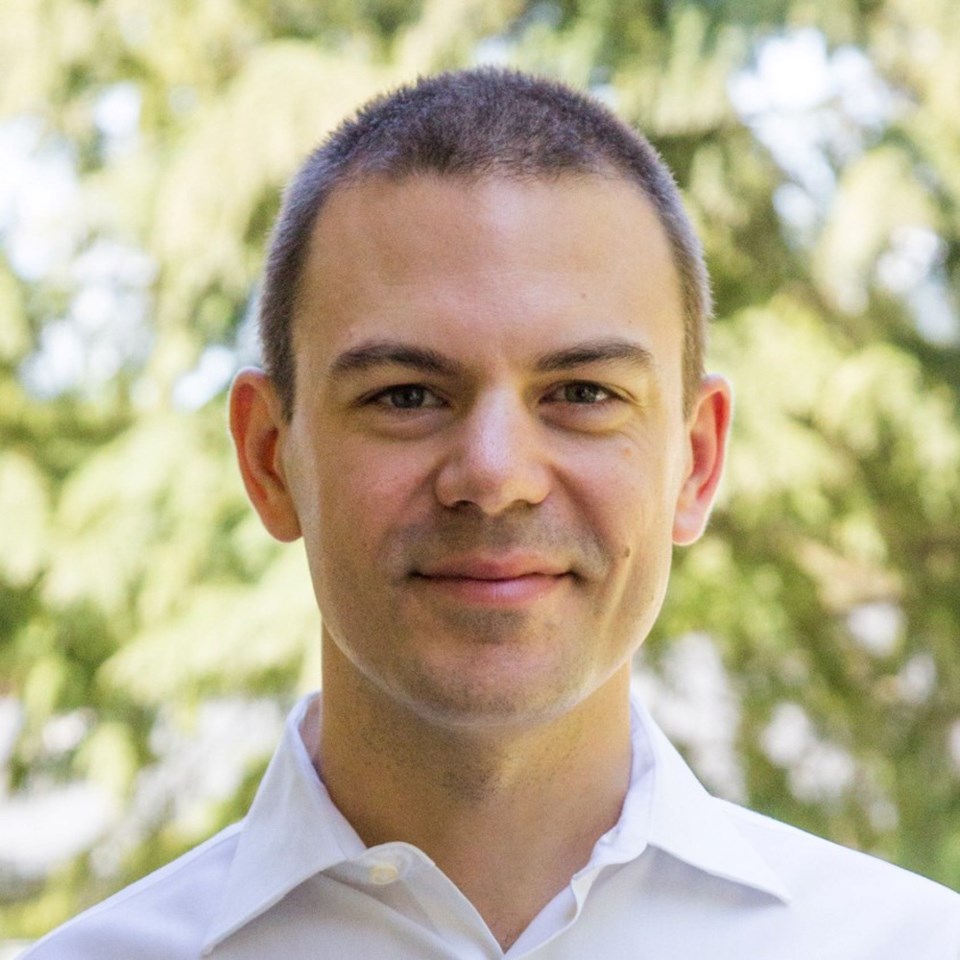
Name: Clayton Welwood
Age: 44
What neighbourhood do you live in? Lynnmour
Occupation: project manager
List your municipal and/or civic group experience: former Lynnmour elementary PAC treasurer
What are your priorities if elected?
Decentralize decision-making regarding the development, character and amenities in neighbourhoods, allowing citizens (instead of planners on staff) to realize their visions through voluntary neighbourhood associations.
What is your plan for local climate action?
The only practical way to reduce CO2 emissions is innovation that makes low-carbon energy globally cost-competitive. Such innovation should be left to the private sector. The proper role of municipal governments is not to engineer behaviour (e.g. “get citizens out of their cars”) or declare emergencies when they do not exist. Rather, the district should focus on mitigating likely impacts of climate change, such as coastal infrastructure improvements to address sea-level rise, and consumption-based billing for water use to address seasonal depletion of reservoirs.
What is your plan to address the housing crisis?
The main lever of housing affordability that municipalities control is supply, particularly: what can be built, how long it takes, and how much it costs. Construction costs can be reduced by streamlining the permit process and reducing permit fees. Simplifying the building code would also help. However, the big issue is that many citizens don’t want greater density or more development because of the increased strain on local infrastructure: traffic. Until we can devise a system whereby long-time residents are compensated for the downside of development, many will continue to oppose it.
What is your plan to improve transportation on the North Shore?
Cycling is my preferred mode of transportation, but I realize North Vancouverites aren’t about to forego private automobiles any time soon. Building more road infrastructure (such as a third crossing) is necessary, but won’t solve the problem. To limit traffic congestion, we should consider road pricing, such as modest tolls ($1-$2) at choke points at times of peak demand. This could incentivize alternatives, such as carpooling, ride-sharing and public transit. It could eliminate some unnecessary trips, or shift them to less-busy times, e.g. commuting to work for those on flexible schedules.
What should the municipality do to support small business?
The most serious harm done to small businesses were the COVID-19 orders, which forced many into bankruptcy. Though these orders were imposed by the provincial government, municipalities went along with them, with loss of livelihoods to small entrepreneurs and workers that depend on them. Now, many retail and other businesses are suffering for lack of staff. Would-be entrepreneurs are choosing other livelihoods because they realize all their hard work can be destroyed in an instant. When municipal leaders see prov/fed governments violating the rights of their citizens, they should speak up.
Does the district need to diversify its housing supply?
Yes, housing here still suffers from the “missing middle.” For young families, detached homes are too expensive, yet condos don’t provide enough space. We need more townhouses and other low-rise forms of multi-family housing that provide opportunities for neighbours to interact and for kids to get outside. Owners of detached homes should also have the ability to add units to their property (laneway homes, basement suites) with minimal red tape. This allows neighbourhood character to be preserved while increasing the supply of affordable housing.
Website/social media contacts:
votewelwood.ca
facebook.com/votewelwood
School board candidates (four trustees)
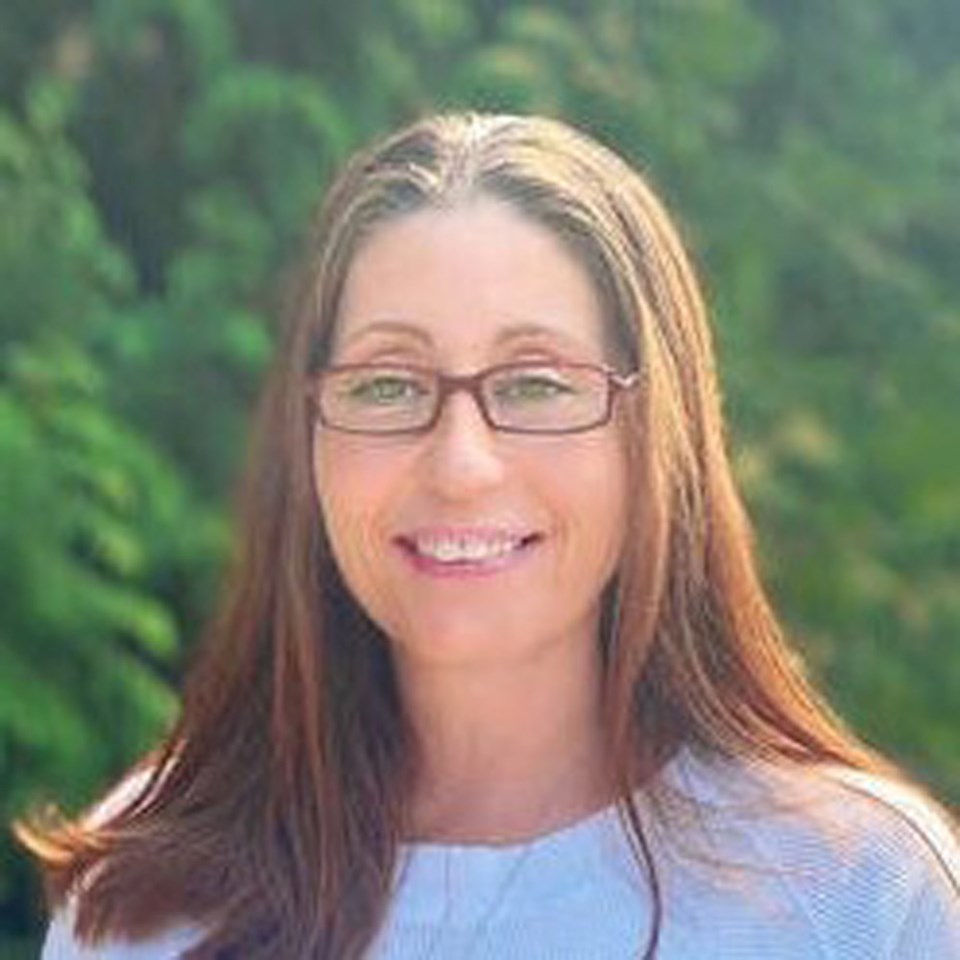
Name: Jennifer Branston
Age: 45
What neighbourhood do you live in? Blueridge
Occupation: full-time volunteer
Do you have children in the North Vancouver school system? yes
What are your priorities if elected?
Diversity, equity and inclusion, Truth and Reconciliation, equitable access to education social emotional mental health resources and training transparency and accountability, environmental sustainability, outdoor learning.
What is the biggest challenge facing the school district and how would you address it?
The biggest challenge for us in the North Vancouver School District is equity and equality. It is vital to understand the difference between the two and how we can meaningfully achieve this. I would like to see an equity audit occur to inform the North Vancouver School District in their decision-making processes to achieve equitable access to education for all students as stated in the current strategic plan. A look at where we are currently at, and what areas we need to focus on.
What is your assessment of how schools handled learning during the COVID-19 pandemic and what should be done differently in future waves of the virus?
Unprecedented challenges were faced by schools, families, students, and staff throughout the pandemic. The K-12 Restart Plan was developed in collaboration with all partner groups/stakeholders which enabled schools to remain open, under the restrictions of the Provincial Health Officer and Ministry of Education and Childcare. Much has been learned since then, and it has shifted the mindsets of teachers, staff, students, stakeholders, parents, and community organizations who came together like never before, in a collaborative effort to support the continuation of student learning.
Is there any segment of the school population that is not being served as well as it could be by local schools and what should be done about it?
All marginalized students still face challenges with equitable access to their education within the North Vancouver School District. Listening to those with lived experience would assist the North Vancouver School District to begin to understand what/where the barriers are and how we can effectively enact change to ensure equity for all. Working alongside those with lived experience would enable informed decision-making, to alleviate the disparities, barriers, and inequities that currently exist.
What do you see as the school district's role (if any) in providing day care options for families?
I am not sure what level of resources and/or monetary budget support may come with the new role the NVSD has to play in child care, as this shift to include it only happened recently. I would suggest speaking with a variety of stakeholders and/or partner groups about what possibilities exist within the current structures we have. Here in the North Vancouver School District, we have a unique opportunity to provide safe and equitable access to child care, and affordable options for working families.
What do you see the schools' role as in promoting social justice issues?
Educating students about the true history of past and current human rights issues and restorative justice fosters a sense of belonging to humanity and is imperative to being socially connected and respectful of diversity, ethically responsible, and engaged. Teaching critical thinking is essential to becoming educated global citizens and is learned through our NVSD innovative instruction.
Website/social media contacts:
jenniferbranston.ca
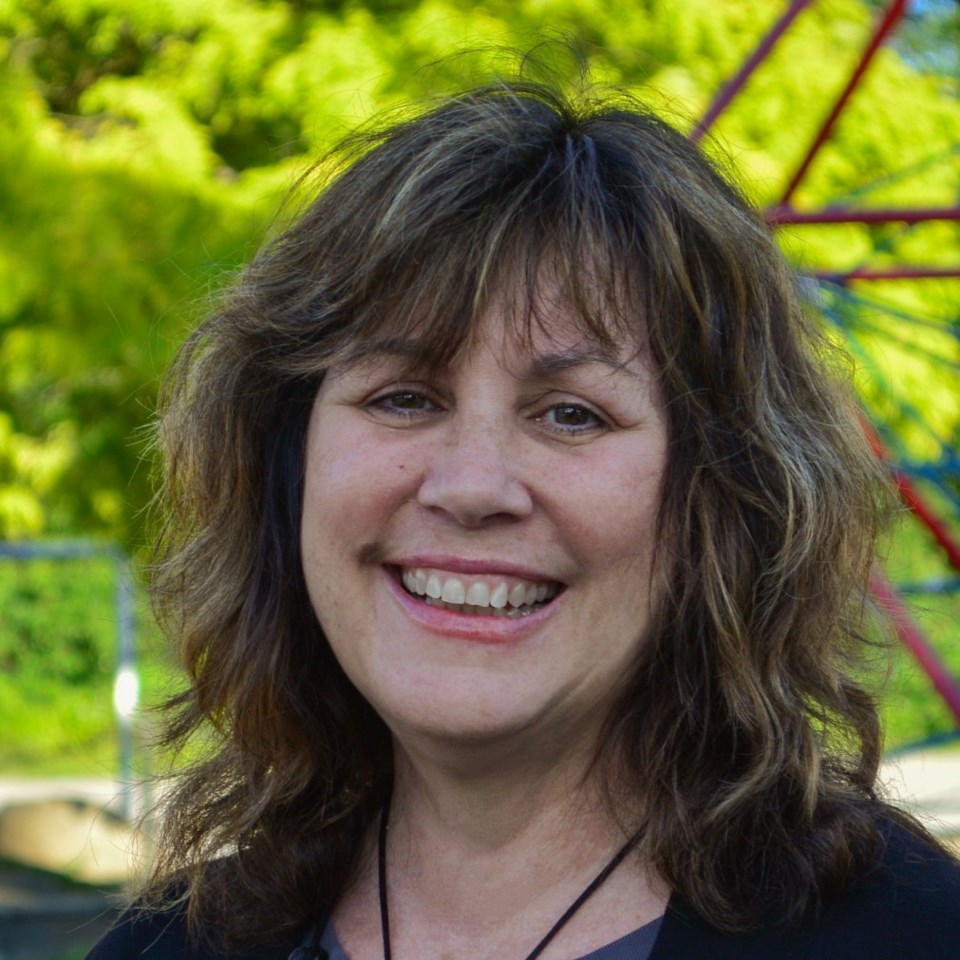
Name: Cyndi Gerlach (incumbent)
Age: 58
What neighbourhood do you live in? Carisbrooke
Occupation: Trustee
Do you have children in the North Vancouver school system? My children have all graduated from NVSD
What are your priorities if elected?
I will continue my work to create improved policies to combat racism, sexism, and ableism; to break down the barriers surrounding mental health; increase focus on the safety of students and staff, and ensure transparency.
What is the biggest challenge facing the school district and how would you address it?
The biggest challenges facing NVSD is mental health stigma, ableism and racism. These areas directly impact learning outcomes for students and negatively affect morale and retention for employees. Looking inward at the sources of these issues means we can highlight the specific challenges that need to be addressed and create space for the necessary dialogue for change to start. Understanding micro-aggressions and reflecting on our own internal biases, we can build new policies to overcome these concerns, making our district stronger, and assist students in becoming responsible citizens.
What is your assessment of how schools handled learning during the COVID-19 pandemic and what should be done differently in future waves of the virus?
NVSD did an extremely good job supporting students in learning during this pandemic. While all school boards must follow the directives of the PHO; teachers, support staff, and administration demonstrated amazing resilience and creativity in delivering a strong educational experience for our students. There was no script to follow, yet they remained focused on what mattered. Without the dedication teachers have for their students, we couldn’t have gotten through COVID-19. We have learned a lot from our experiences, lessons that will serve us well in strategizing during future waves.
Is there any segment of the school population that is not being served as well as it could be by local schools and what should be done about it?
Two stand-out segments of our student population who are not being served sufficiently are students on the Evergreen Certificate track and students with behaviour challenges. While NVSD has started moving in the right direction, the pace of change is too slow to fully benefit those currently in our system. We still lack critical resources and training in new ways of understanding how these different groups of students learn. We also need to clarify what supports both students and staff require and make providing these supports a higher priority.
What do you see as the school district's role (if any) in providing day care options for families?
Our schools represent a vital hub within our communities. Ensuring students have a safe place to be and providing parents with increased options for care are key parts of the role our schools play within society. I would like to see more before- and after-school programming in every school. I would also like to see a more inclusive environment in the after-school programs in our high schools.
What do you see the schools' role as in promoting social justice issues?
It is everything. Public education is the cornerstone for improving society. By educating students on the issues of today and demonstrating strong social justice values through our policies and actions our education system improves our society. I firmly believe that we need to listen to the concerns of students and staff, and be willing to hold difficult conversations. Open dialogue on all issues of social justice is foundational to positive societal change.
Website/social media contacts:
cyndigerlach.com
twitter.com/CyndiGerlach
facebook.com/cyndi.gerlach.campaign
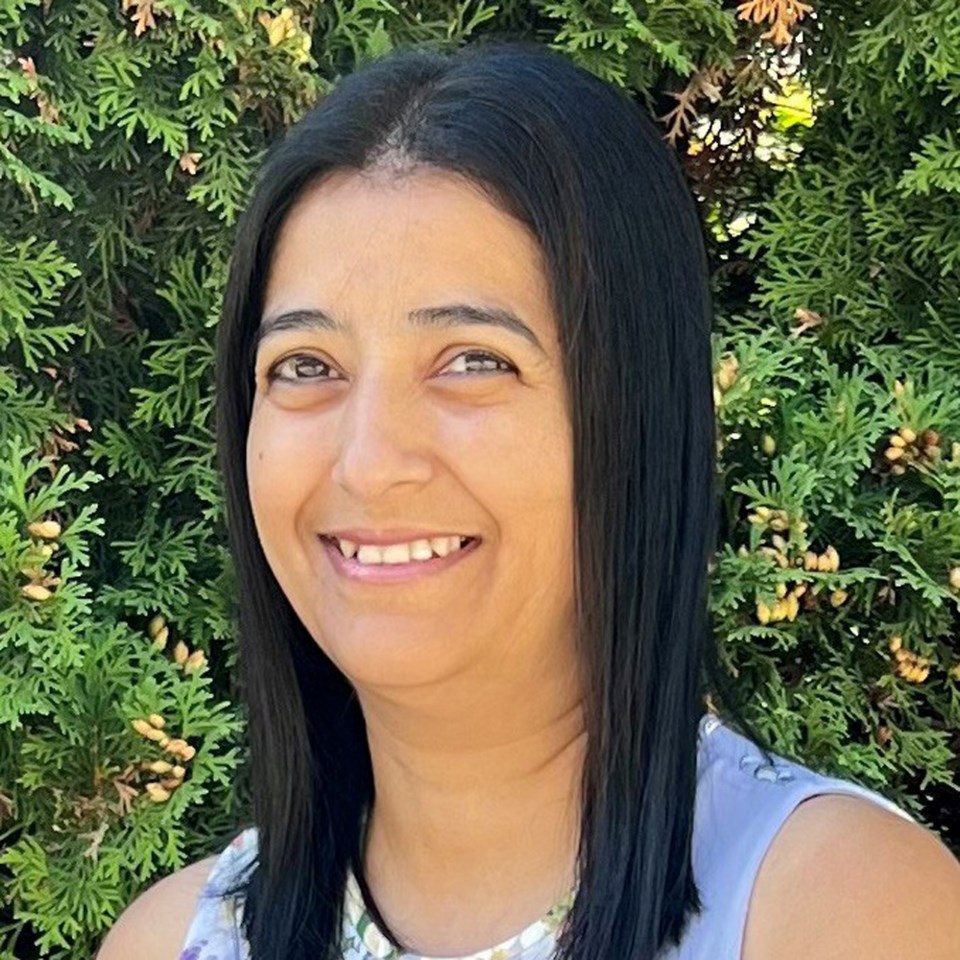
Name: Kulvir Mann (incumbent)
Age: 52
What neighbourhood do you live in? Canyon Heights
Occupation: NVSD School Board Trustee & NS Safety Council communications co-ordinator
Do you have children in the North Vancouver school system? Yes, I have 2 children in secondary school
What are your priorities if elected?
My priorities are to create an inclusive, diverse and equitable school district where everyone has a sense of place. To respectfully collaborate, build relationships and ensure well-being for all in NVSD as a team player.
What is the biggest challenge facing the school district and how would you address it?
The biggest challenge is healing and getting back to normalcy in our schools. The pandemic affected everyone differently and some are dealing with health issues, mental well-being, anxiety and connecting with each other. Funding is always an issue as there are lots of priorities but limited funds that we decide how are allocated during each school year. It is important for me to be transparent, have fiduciary responsibility to balance the budget and advocate to ministry on behalf of NVSD. Also ensuring there is equality in the funds dispersed so all students have proper resources and supports they need.
What is your assessment of how schools handled learning during the COVID-19 pandemic and what should be done differently in future waves of the virus?
North Vancouver School District was a leader during the pandemic and we kept all our schools open while other school districts did not. Our senior team had a calm and measured approach and communicated regularly with our families and community. Our rules and guidelines model were valued by the Ministry. We had already started and done most of the ventilation upgrades and used extra funding to successfully complete work at all our schools. I have confidence in our staff to have proper guidelines in place to keep our schools open and safe so all our students can learn and grow.
Is there any segment of the school population that is not being served as well as it could be by local schools and what should be done about it?
We do our best to support, encourage, empower and care for all students and staff in NVSD. Our Indigenous, neurodiverse, LGBTQIA2S+, multicultural backgrounds or new immigrants are the ones that I would like to see more designated services, educational supports and extra funding provided for by Ministry to NVSD. I would like to see the Indigenous grad rate increased and continued collaboration with host nations and elders. I also want to see more resources, mentorship, training and educational tools for our teachers, administrators and support staff. We currently have many supports, opportunities and initiatives in place already at our schools.
What do you see as the school district's role (if any) in providing day care options for families?
The school district has a role to support families with childcare. This is a significant, long-term issue for families, especially with high costs of living requiring both parents to work. The waitlists are lengthy and parents need access to consistent and reliable childcare. Currently, it is difficult to provide for this care on school sites due to limited spaces available as staff and teachers need access to their classrooms and other school spaces for prep time, collaborating with each other in meetings and school activities. We are working diligently with both municipalities and service providers to support expansion of childcare.
What do you see the schools' role as in promoting social justice issues?
I do believe it is important to empower our students and have them aware and involved in what is going on in the world around us. The students have a voice not just in their classrooms and schools but in the community to be heard and make change happen. We strive to have our students acquire knowledge, skills and attitudes needed to contribute to a healthy society as educated citizens. As a trustee that has been vital to me to listen, engage, support and make connections with students so they know someone will take their feedback and be their advocate.
Website/social media contacts:
kulvirmann.ca
twitter.com/BeingKulvir
instagram.com/mskulvir
facebook.com/KulvirNVSDTrustee/
.jpg;w=960)
Name: Linda Munro (incumbent)
Age: 47
What neighbourhood do you live in? Lynn Valley
Occupation: communications at Capilano University and school trustee
Do you have children in the North Vancouver school system? Yes, two children at Ecole Argyle Secondary.
What are your priorities if elected?
To see NVSD offer exceptional learning opportunities, foster a sense of belonging in schools, support mental health and well-being, assist complex learners to succeed and further reconciliation through education
What is the biggest challenge facing the school district and how would you address it?
Following two years of COVID-19 restrictions, we know some students thrived learning independently, but many did not. NVSD needs to focus on creating environments and school cultures that promotes well-being. When we are intentional about building community in classrooms where everyone matters, we can create environments that facilitate learning, growth and success. Even further, by offering a variety of extra-curricular activities to reach different students, we facilitate ways for kids to participate, engage and connect.
What is your assessment of how schools handled learning during the COVID-19 pandemic and what should be done differently in future waves of the virus?
School districts are emerging from two and a half years of continuously pivoting and re-learning how to serve the needs of students. There was no playbook for operating a school district during a pandemic. In spite of the hardships, our school communities showed remarkable resilience. Now, it is time to re-build the sense of community at school that was lost. Together, we can re-learn the art and value of gathering. In any future measures to address COVID-19, I hope to see balanced attention to both public health guidance to manage physical health and steps that create social connections.
Is there any segment of the school population that is not being served as well as it could be by local schools and what should be done about it?
As trustees, we hear from many voices representing the diversity of families served by the North Vancouver School District. Some high school students graduate without a clear pathway forward. I see potential for increased work integrated learning opportunities for students with local businesses. And we must continue in meaningful dialogues with the Squamish and Tsleil-Waututh Nations—always supporting Indigenous students and Indigenizing the curriculum.
What do you see as the school district's role (if any) in providing day care options for families?
We know that parents need more local childcare options. Over 75 per cent of NVSD elementary schools have some childcare on-site, plus there are schools with childcare adjacent to or nearby the school. However, the status quo is not meeting the needs of local families. The school district is exploring opportunities to create more childcare on school properties. Through the newly streamlined Ministry of Education and Childcare, I believe there could be opportunities for partnerships and funding to add more before and after school care spaces and I will be a strong advocate for pursuing them.
What do you see the schools' role as in promoting social justice issues?
I believe that schools play a vital role in building student awareness of social justice issue. One of NVSD’s guiding principles is to provide innovative instruction that supports students to learn from the past, engage in the present and prepare for the future. It’s inspiring to see educators relating to students in ways that honour their abilities to contribute to society. Part of this is inviting students to learn about social justice issues, develop critical thinking skills and become global citizens.
Website/social media contacts:
lindamunro.ca
facebook.com/LindaMunro4NVSD
twitter.com/lindamunro
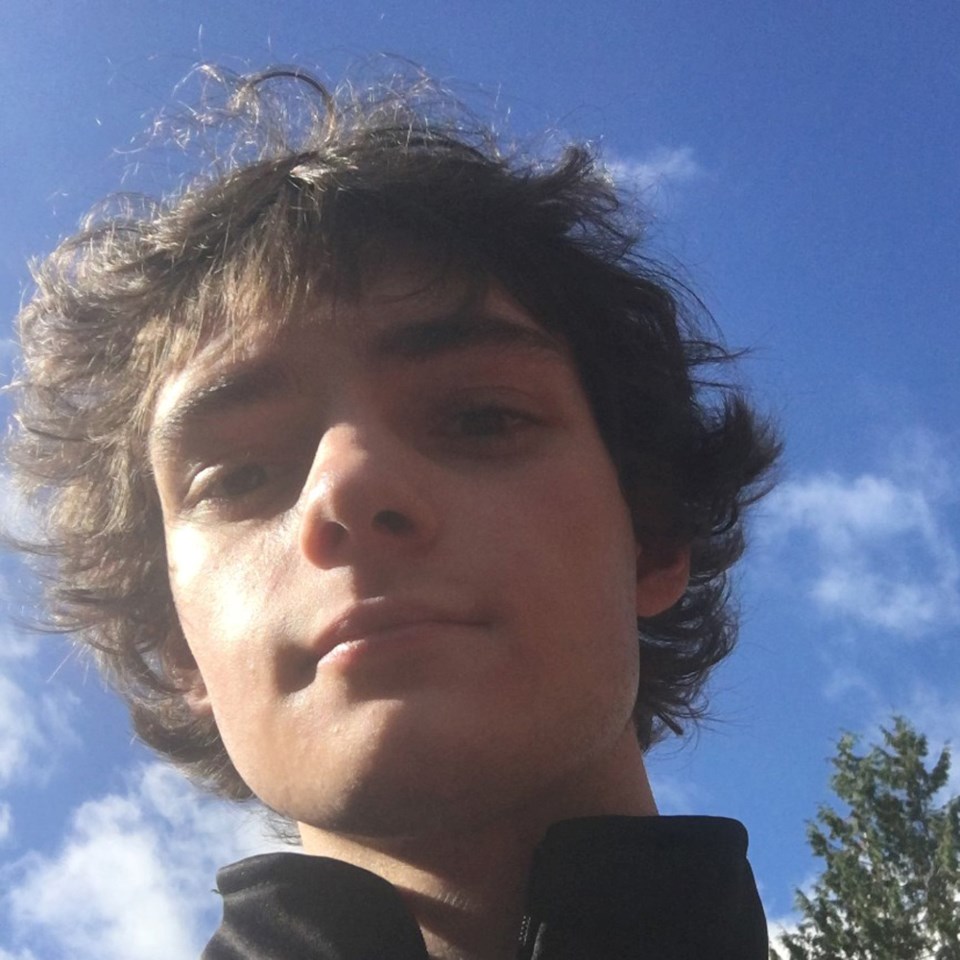
Name: Layne North
Age: 22
What neighbourhood do you live in? North Van District/Capilano
Occupation: full-time student
Do you have children in the North Vancouver school system? no
What are your priorities if elected?
Focus on developing practical life skills for students (critical thinking, financial literacy) Creating opportunities for talented students to excel, improving procedures on bullying, updating sex and drug education.
What is the biggest challenge facing the school district and how would you address it?
An education system that doesn’t teach students the core skills they need to succeed in the 21st century. Students study years for things that will be automated in the future, and for jobs that may not exist. Meanwhile, they’re taught little about essential skills e.g., handling investments, doing taxes and cooking. They have no idea how algorithms are increasingly manipulating their behavior. Classes focus on learning information, but rarely on how to use or understand it. This requires an overhaul of the curriculum, but at the school board level, critical thinking can be emphasized.
What is your assessment of how schools handled learning during the COVID-19 pandemic and what should be done differently in future waves of the virus?
Initially a valid response, but policy did not keep pace with emerging science. Instead, policies were incoherent; e.g., emphasis on sanitizing surfaces despite dismal evidence of surface transmission for COVID; masking policy based on inconsistent political calculus and emotions of adults rather than peer reviewed research on efficacy; no comparison of risks and benefits made for young children reliant on facial expression. Outside areas were available for socially distanced, in-person learning but little attempt was made to utilize them during the warmer months. Parents bore the burden.
Is there any segment of the school population that is not being served as well as it could be by local schools and what should be done about it?
In life, some are capable of more than others. Some have learning difficulties, and some are gifted. Society relies on the gifted to create new things and to advance. Despite that, we do not support their development. The gifted program is limited, as are the number of AP courses. Both intellectually advanced students and those with learning difficulties are typically thrown in with the rest of the students and left to do their best on their own. More AP classes should be provided, and a separate, enhanced curriculum in elementary school, potentially in different classes.
What do you see as the school district's role (if any) in providing day care options for families?
While day care is not traditionally part of formal education, it is much easier for parents with multiple children if they can drop them off proximate to each other. From the student’s perspective, it’s very irritating to have three-year-olds with 10-year-olds, so I recommend considering adjacent facilities near schools, developed in co-ordination with school boards, but not a part of elementary school itself. For after school care, it’s important for many parents to have their children with care beyond school hours, and providing activities on school grounds enriches children’s experience.
What do you see the schools' role as in promoting social justice issues?
"Social justice" has emerged as "political ideology," which in principle is antithetical to careful thought. Some may support an ideology and wish to pass their " on, but parents of all political orientations rely on schools to instruct fairly. Ideology undermines their trust in schools and by extension the government. This destabilizes society and decreases tolerance. When children are exposed to ideology before understanding nuance or learning to think for themselves, a line between indoctrination and education is blurred. Ethics and critical thinking should replace social justice.
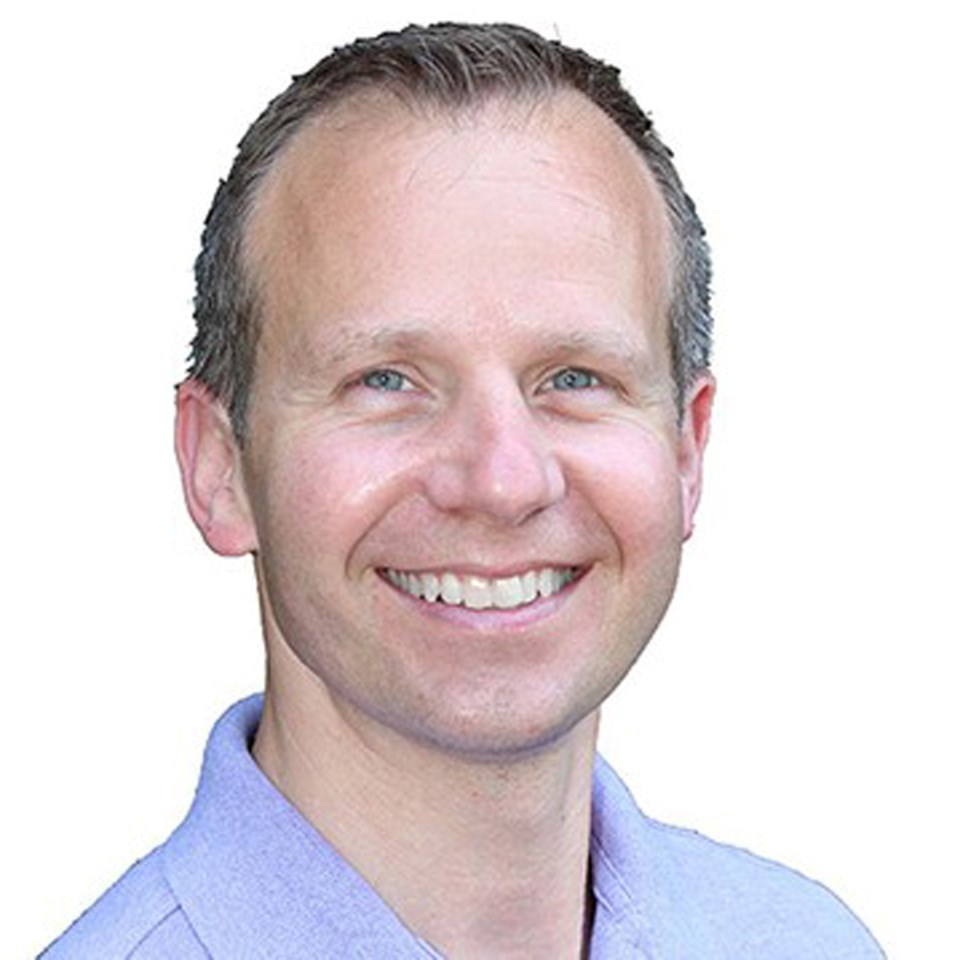
Name: George Tsiakos (incumbent)
Age: 48
What neighbourhood do you live in? Northlands
Occupation: law librarian (Head, UBC Law Library) / adjunct professor (Peter A. Allard School of Law) / school trustee (North Vancouver Board of Education)
Do you have children in the North Vancouver school system? Yes, two children in elementary school.
What are your priorities if elected?
Increase student and staff wellness; advance inclusivity; support diverse learners; advance truth and reconciliation; enhance learning with innovation and technology; professional development; good governance; sustainability.
What is the biggest challenge facing the school district and how would you address it?
As we continue to live with COVID-19, mental health and wellness is a key priority for the coming year. The pandemic has taken a large toll on everyone, in particular, students and school district employees. We must increase mental health awareness and reduce stigma by promoting and resourcing mental, physical, and emotional health strategies. The school district has taken important steps forward in this regard, but there is more to do. In particular, we need greater emphasis on early interventions and increased support for elementary school counsellors.
What is your assessment of how schools handled learning during the COVID-19 pandemic and what should be done differently in future waves of the virus?
Overall, schools did a good job of providing continuity of learning. However, the sudden shift to online learning revealed how unprepared we were. That said, educators did an amazing job transitioning and adjusting their learning spaces and approaches despite ever changing health orders and safety protocols. Moving forward, we must be better prepared to transition to online learning or adjust learning spaces should the need arise. We need appropriate technologies and educational supports in place and we should explore options for hybrid learning while minimizing burdens on educators.
Is there any segment of the school population that is not being served as well as it could be by local schools and what should be done about it?
Yes, we need to address the needs of diverse learners. We all learn at a different pace and in different ways. It is imperative that we support equitable learning environments by providing targeted supports so that all students can succeed. Two factors are essential: advocating for increased provincial funding, and providing additional training and resources for educators and staff. In addition, we need to find more creative ways within our budget to meet diverse student learning needs while still finding ways to support additional school district priorities.
What do you see as the school district's role (if any) in providing day care options for families?
The school district already provides important care options for families. Now that child care falls under the Ministry of Education, we can do more to meet this rising need. We should focus on purpose-built spaces to guarantee long-term availability and use. Several school properties have the potential for standalone child-care facilities. However, the demand for childcare is high on the North Shore and the school district alone cannot solve this issue. Developing mutually beneficial partnerships with both the City and District of North Vancouver and third-party service providers are essential.
What do you see the schools' role as in promoting social justice issues?
Schools have an important role to play in promoting social justice. A key aspect of social justice is recognition that everyone has the right to be treated in an equitable manner and to have equitable opportunities to succeed. It is about ensuring that everyone has the supports they need to participate fully in society and to reach their potential. Also, the chief mandate of the BC education system is to develop the “educated citizen”, who has the skills and knowledge to contribute to a “democratic and pluralistic society.” Promoting social justice in schools aligns well with this goal.
Website/social media contacts:
georgetsiakos.ca
facebook.com/GeorgeTsiakosNVSDTrustee
[email protected]
